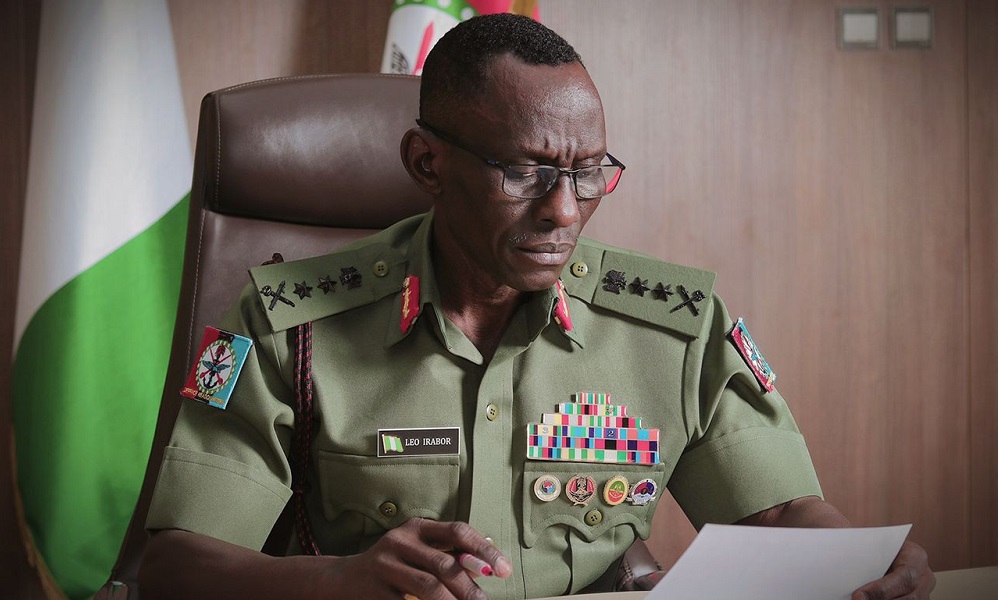Terrorism: Why Human Rights Suffer During Military Operation–Gen Irabor
General Lucky Irabor, Chief of Defence Staff, has explained why Nigerians are vulnerable to attacks during ongoing conflict between the armed forces and terrorist groups.
The military chief admitted on Tuesday that the people who have died during the conflict were unfortunately found at communities held hostage by BokoHaram and Islamic State’s West Africa Province(ISWAP).
Advertisement
He made the disclosure at the colloquium on mainstreaming Human Rights in Counter Insurgency Operations in Nigeria organized by National Human Rights Commission in collaboration with Centre for Democracy and Development, which held at the Reiz Continental Hotel, CBD Abuja.
The commission announced at the event that over 350,000 people have been killed by terrorists since 2010.
Irabor, who was represented by Rear Admiral A. O. Adebanjo, further explained that one issue with counter insurgency operations is that terrorists’ area of operation is not definite or well defined.
He said, “Unlike conventional state versus state warfare where theaters of operations or battlefields are well defined, counter insurgency operations do not have clearly defined theater of operations.
Advertisement
“Infact, the communities where the terrorists secure as their enclave often turnout to be theaters of armed struggles between Government forces and the insurgents. This makes the people in such communities highly vulnerable to the actions of both the insurgents and government forces.
“Indeed, the right to life and liberty, freedom from torture, freedom of opinion and expression, as well as right to work and education among other rights of the people in such communities could be easily violated whether intended or unintended.”
Adebanjo added that even though the armed forces of Nigeria had been accused of human rights abuses and violation of international human rights law as a result of its counter insurgency operations, the military has improved thereby reducing such allegations “drastically in recent times.”
“I submit that a key responsibilities of the armed forces of Nigeria is to create secured, enabling environment for human and general development to thrive in Nigeria and other countries we are deployed,” he said.
On his part, Executive Secretary, NHRC, Tony Ojukwu SAN promised to work with the Nigerian armed forces to integrate human rights into its counter-insurgency operations as well as strengthen its existing complaints and accountability mechanisms.
Advertisement
He said: “Since 2010, Nigeria has faced the challenges of BokoHaram insurgency in the North-East. This has led to loss of over 350,000 lives and displacement of more than 2 million people across the region to other parts of Nigeria and neighbouring countries. The BokoHaram insurgency has become one of the gravest violations of human rights in the history of Nigeria. The insurgency has also set Nigeria on the part of multiple security crises from the North central to the Northwest and the Southeast.
“The Commission acknowledges the existing rules of engagement, the code of conduct and other efforts of the military in developing framework for the protection of human rights.”



